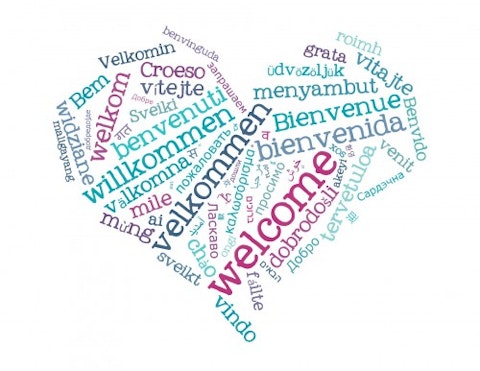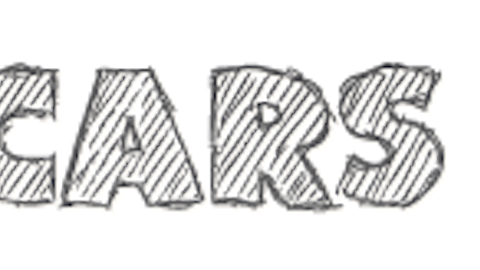If you are planning to learn a foreign language, you might like to know which is the easiest second language to learn, being a native English speaker (and this is an important point, as different languages are easier or harder to learn depending on the learner’s native tongue).

We should start by admitting that those who have English as their native language, regardless of their nationality, generally have it easy when it comes to communicating with foreigners, considering that English has become the lingua franca of the 21st century. English is ubiquitous, and therefore most native speakers of the language don’t feel the need to learn a second language. Nevertheless, there are still some who choose to pick up the study of an alien tongue, and explore its richness and cultural value.
While they may not be vitally important for travelers, in the globalized era we live in, language skills are still crucial for professionals. Just have a look at our list of the Top 6 Most Respected Professions that Also Pay Well and ask for yourself whether having a second language is useful in some of those careers. In fact, learning a second language proficiently can lead to new careers in and of itself, such as becoming an ESL teacher to natives of that language, or even a translator.
Compiling this list was no easy task, for the ease of a language cannot be established in a mathematical, unbiased way. In fact, this countdown is inevitably subjective, and definitely open to debate. However, we found a great starting point for our research in the language difficulty ranking created by the Foreign Service Institute, where languages are categorized regarding their closeness to English, and the estimated time to learn them. All the languages in this countdown fall under Category I of the ranking; being the closest languages related to English, and taking approximately 23-24 weeks to learn them (575-600 hours).
Let’s take a look at the countdown and find out which is the easiest second language to learn for English speakers.
5. French
Price: $199 with Learn French: Rosetta Stone French – Level 1-5 Set
Like any Romantic language, French poses some grammatical difficulties for the English speaker, including gendered nouns, many verb forms, and pronunciation; this last one being particularly difficult for its silent letters, variety of vowel sounds and foreign sounds to the English language. Nevertheless, French is one of the easiest Latin-derived languages for English native speakers to learn because of the lexical influence French had upon English during the Norman occupation. Up to one-third of today’s English has been influenced by French, according to linguists.
The countdown of the easiest second language to learn for English speakers continues on the next page with another European-based language.
4. Swedish
Price: $169 with Learn Swedish: Rosetta Stone Swedish – Level 1-3 Set
The most spoken of the North Germanic languages has a similar syntax and vocabulary to English, which makes it rather easy to learn. English and Swedish share many cognates, particularly in spoken language. Moreover, the Swedish word order structure and verb conjugations follow similar grammatical rules as those of English. Though there are many dialects in the Swedish language, the incredibly rich culture of the country makes it very appealing to get some books, find a tutor, and start practicing. After all, there’s no way of getting more fully immersed in cultural exuberance than by learning the language and exploring it from within.
3. Spanish
Price: $30 with Living Language Spanish, Complete Edition: Beginner through advanced course, including 3 coursebooks, 9 audio CDs, and free online learning
Spanish made it to the top three in our list mainly because the chances of practicing it in the United States are endless. Furthermore, the Latino community is so important in America that it has become somewhat mandatory to learn the language of the largest immigrant community in the country. Finally, apart from the difficult pronunciation of the rolling ‘r’ and the ‘ñ’, pronunciation is as straightforward as you can imagine: words are pronounced as they are written. However, grammatically speaking, Spanish is definitely not the easiest language to learn. First of all there are many dialects which utilize deep pronunciation differences, depending on the variety of the language you are learning; from Argentinian Spanish to Spanish from Spain, and from Mexican Spanish to Chilean Spanish. Just listen carefully and you’ll see what I mean. Moreover, regarding verb conjugation, gender, and grammatical irregularities, it is a rather difficult language.
2. Norwegian
Price: $22 with EuroTalk Interactive – Vocabulary Builder! Learn Norwegian
Don’t let yourself get frightened by Norwegian’s strange characters, for if your mother tongue is English, you will find this Scandinavian language quite easy to learn. On the one hand, Norwegian pronunciation is quite consistent. It is very similar to English regarding syntax and word order, and verb conjugation is quite simple. On the other hand, there are lots of dialects and variations in Norway’s official language. Plus being a rather isolated language you won’t have many opportunities to practice it outside of Norway.
1. Afrikaans
Price: $25 with Learn Afrikaans * Visual Language Learning * for PC, MAC, Ipod, MP3 player
This West Germanic language may be unknown to many of you, for it’s only spoken in some African countries including South Africa and Namibia. In that sense, you might find it hard to get a native speaker to practice with. However, this is one of the easiest languages to learn for English speakers. In my opinion, the greatest feature of Afrikaans is the absence of verb conjugation and noun gender, two of the most difficult grammar parameters to learn in a foreign language. Moreover, being a Germanic language, you will find its vocabulary, particularly those words with Germanic roots, rather similar to English. A good reason to learn Afrikaans? Well, if you ever run into Charlize Theron, you can sweep her off her feet by intoning her native tongue.





